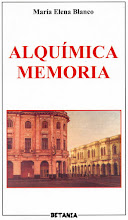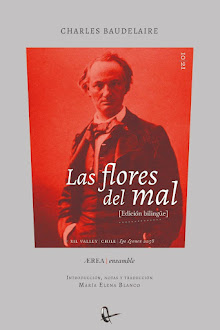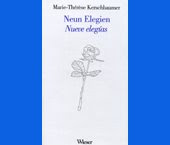THREE AUSTRIAN LAKES
Contemplative poems written in the manner of Po-Chü-i (772-846 A.D.)
I GRUNDLSEE
Earth and sky are reflected on the serene surface of the lake.
From the bay window of the house I live in I observe
each flirtation of the September light with the water
and the wake left periodically by the boat that at the top
of the hour makes the crossing to Gössl, on the opposite
end. On the north shore the hills shelter a landscape
of pastoral mountain life: spread out farms with
silos and outhouses, the chopped wood neatly stacked
for the next winter. Far off, the sounds of cowbells,
bird trills and perhaps axes and shovels from the mine,
the hollow hiss of a foreboding wind gust, the cackle
of a retinue of swans. On my south shore, the sun
draws sparks from the stone and silvery pearls
from the glacier above. The colors are all there,
are one. The hand of man, discreet and light. No words,
but peace. One can only bow before such harmony,
praise the fragile balance or measure, pray that,
come night, there may not suddenly be fireworks
or the fateful shot of a hunter or a suicide.
II TOPLITZSEE
A paler sun today, heralding clouds and the bad weather
now hovering over the transalpine valleys. The sharp air
presages a suspicion of gold in the leaves. Apart from
the old inn and a few dinghies at the edge of the water
where the Gössl road vanishes and the forest draws in,
no other house or shop. The rushes and slim trunks
next to the shore sink softly in the bed of fibrous moss,
melting into the acid green element. But the shore is
deceptive and the lake hides its secrets in its concave
metal hull: a question of bombs and bacteria,
lack of oxygen. Of infectious decay under the gleaming
mantle of perfection: the myth of unpolluted nature
martyred in the name of war, idealized by the locals
for the touring lovers of legends. What with millions
of pounds sterling extracted from the bottom, mines
planted by the Nazis. Huge maneuvers of curettage
and all those pines and oak trees, defenseless
in the wake of savagery. Do admire the two waterfalls,
the crystal-clear source descending from the heights
to mingle with the rotten waters of the deep emerald lake.
Distracted, my hand moves to touch the water, that
gesture becomes frozen in the air. The hand of man
weighs heavily here, the darkest hand of man.
III KAMMERSEE
Chamber of water sequestered by tall murals of rock and dense forest
visible only from the sky, recipient of the springy spurt
which, by the name of Traun, cuts through this saline ancient land,
nourishing in its course the prettiest lakes of the planet before merging
and rolling into the mighty Danube. Onto its cup, emptied or brimming,
depending on the whim of El Niño and its impact on the ozone layer
and the snow line, the jet emerging from the stone will keep its
rendez-vous until the end of time and not a leaf will balk if,
during the dry season, one might catch a glimpse of its parched
and rocky bed. Being of hidden nature, it has nothing to hide.
Travel baedekers suggest that Kammersee is but a venue for hikers
with energy reserves and sturdy shoes. But I surmise it is an altar
for the lineage of he who built a bench and table out of fallen branches
and an old tree trunk as backrest, at the precise angle for beholding
the source of the Traun. For I know that neither table nor bench
is visible to anyone not seeking some manner of enlightenment.
Anonymous, humble, the Poet’s hand erects and vanishes.
Published in Havanity / Habanidad (Baquiana, Miami 2010)
English translation: María Elena Blanco


























.jpg)



